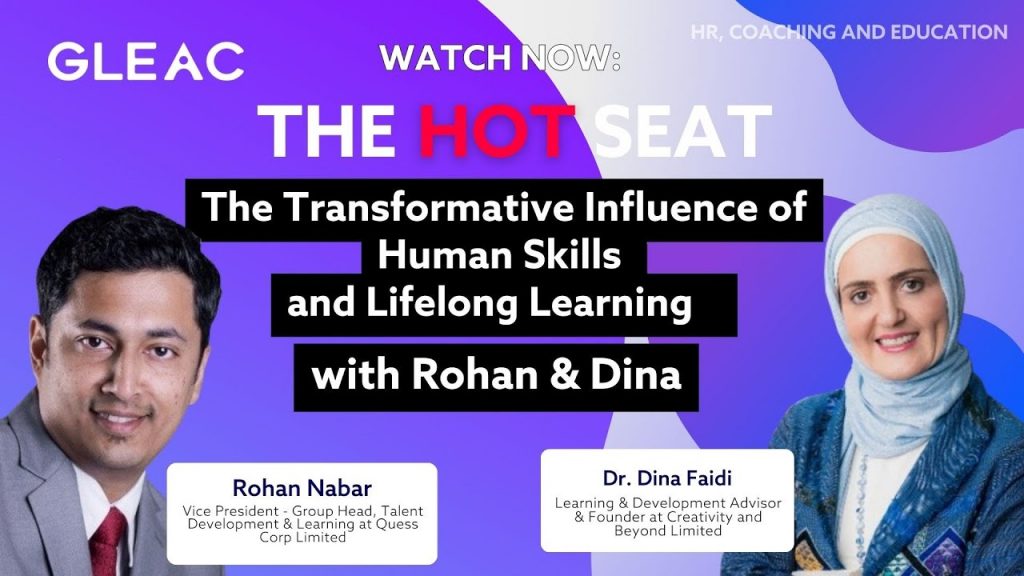Today, we dive into the world of human skills and lifelong learning, two vital elements in personal and professional development. We’re joined by Rohan from Bangalore, India, and Dina, who’s currently in Amman, Jordan. Let’s uncover the importance of self-awareness, the challenges of embracing lifelong learning, and strategies to equip individuals with essential human skills.
The Role of Self-Awareness in Developing Human Skills
Our discussion begins with a focus on self-awareness and its crucial role in developing human skills. Rohan explains that self-awareness serves as the fundamental operating system for all other skills. It’s the foundation upon which other skills are built. Just as an operating system must be updated to accommodate new applications, individuals should continually work on improving their self-awareness to support their personal and professional growth.
Dina emphasizes that self-awareness increases curiosity. As individuals become more aware of themselves, they also become more curious about the world around them. This curiosity drives them to develop new skills and explore new opportunities. In essence, self-awareness and curiosity go hand in hand, paving the way for continuous learning and skill development.
Challenges in Embracing Lifelong Learning
Rohan highlights a significant challenge: the lack of formal education around self-awareness. While traditional education covers various subjects, self-awareness is often overlooked. To address this gap, individuals must seek environments that encourage self-reflection and personal growth. Waiting for external education to provide self-awareness is unlikely to yield results.
Dina adds that motivation is a key challenge. Lifelong learning requires inner drive and self-motivation. It’s not enough to learn; individuals must also apply their knowledge to see its practical benefits. Overcoming this challenge involves maintaining motivation, even when facing long-term goals. Dina mentions the importance of grit—a combination of passion and perseverance—as a crucial factor in sustaining motivation.
Strategies for Equipping Individuals with Human Skills
Rohan and Dina share strategies for organizations and individuals to develop human skills effectively:
1. Shift to a Growth Mindset: Embrace a mindset that welcomes change and growth. Be open to learning new skills and adapting to evolving circumstances.
2. Make Learning Part of the Work: Incorporate learning into daily tasks and responsibilities. Learning should be seamlessly integrated into the workflow, making it practical and relevant.
3. Create a Supportive Environment: Organizations should support employees’ learning journeys. Managers play a vital role by encouraging learning and providing opportunities for application and growth.
4. Set Clear Goals: Establish clear objectives and goals for learning. Understanding the purpose behind learning initiatives can motivate individuals to engage in lifelong learning.
5. Embrace Unlearning: Recognize that some knowledge may become obsolete. Be willing to unlearn and relearn to stay relevant in a rapidly changing world.
6. Foster Curiosity: Encourage curiosity by creating an environment where questions are welcomed and exploration is encouraged.
7. Develop a Learning Strategy: Start with a clear learning strategy. Define the desired skills and outcomes, identify resources, and establish a structured approach to learning.


Developing human skills and embracing lifelong learning are essential for personal and professional growth. Self-awareness serves as the foundation for these skills, driving curiosity and continuous development. While challenges exist, a growth mindset, motivation, and support systems can help individuals and organizations overcome them. The world is in a constant state of change, and those who prioritize learning and adaptability will thrive.
Interested in enhancing your skills with the guidance of these distinguished mentors?
Book a time with Rohan here: https://www.gleac.com/mentors/rohan-nabar
and with Dina here: https://www.gleac.com/mentors/dr-dina-faidi

